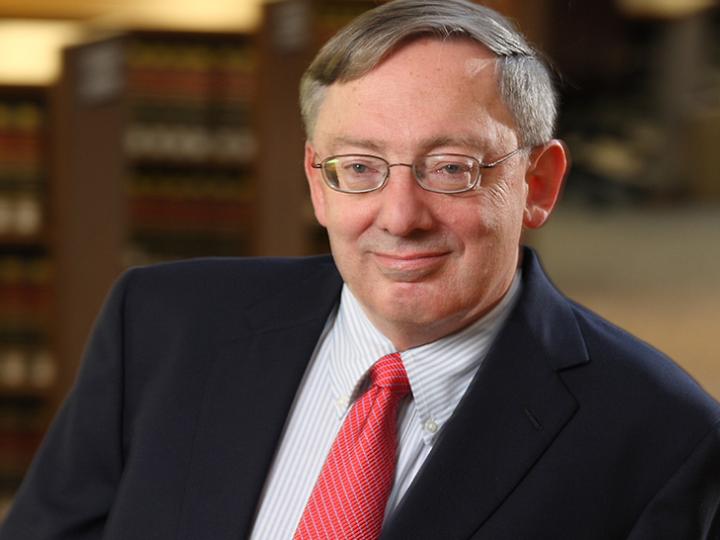Douglas Laycock of University of Virginia School of Law has announced his retirement from teaching. Considered one of the country’s leading authorities on the law of religious liberty and the law of remedies, he has taught and written on these subjects for more than four decades.
Laycock was elected to ALI in 1983 and elected to Council in May 2001. He served as Second Vice President from 2008 to 2015 and as First Vice President from 2015 to 2019. He resigned from the Council and Vice Presidency in 2019 to become a Reporter for Restatement of the Law Third, Torts: Remedies. He has participated in numerous ALI projects throughout the years and was previously in the Members Consultative Group for Restatement of the Law, Charitable Nonprofit Organizations, and served as an Adviser to Principles of the Law, Student Sexual Misconduct: Procedural Frameworks for Colleges and Universities, and Restatement of the Law Third, Restitution and Unjust Enrichment, among others.
Below is an excerpt from a tribute by UVA Law:
“It was naive, but I thought I was going to argue cases in the Supreme Court and save the world,” Laycock said. “Well, 40 years later I did argue cases in the Supreme Court. I certainly didn’t save the world.”
Laycock’s briefs, oral arguments and frequent congressional testimony on behalf of religious groups have helped reinvigorate the free exercise clause and helped lay the groundwork for four federal statutes protecting religious liberty.
At times he has been the target of both the left and right in the culture wars, and he has represented both sides in court. At the Supreme Court, he represented the Catholic Archbishop of San Antonio and, in another case, Texas parents and students who objected to prayer at high school football games. His work — and a letter of support he co-authored — built support for the bipartisan Respect for Marriage Act, which codified federal protections for same-sex and interracial marriages while protecting the right of religious organizations not to participate in those weddings.
“I could just as well have been a gay-rights lawyer as a religious liberty lawyer,” Laycock mused. “I got pulled into the religious liberty space serendipitously, and of course the gay-rights space was well occupied.”
Still, he wrote amicus briefs supporting both same-sex marriage and religious liberty in the two Supreme Court cases that recognized the rights of married same-sex couples, Obergefell v. Hodges and U.S. v. Windsor. When the Masterpiece Cakeshop case was before the court, John Dao ’19, a student who was active in the LGBT student group Lambda Law Alliance, invited him to address Lambda and the American Constitution Society, to allay the student groups’ concerns about the decision’s potential to hurt the gay rights movement.
Laycock will head off to retirement in Austin, Texas, where his sons and his granddaughter live. He retires as the author of a five-volume collection of his writings on the law of religious liberty, lead counsel in six Supreme Court cases and the author of 35 amicus briefs filed there, and the leading expert on the law of remedies. He literally wrote the book on remedies, too, authoring “Modern American Remedies: Cases and Materials” — a widely used law school textbook that reorganized the way remedies are taught — and “The Death of the Irreparable Injury Rule.” He is currently working as a reporter on the American Law Institute’s “Restatement (Third) of Torts: Remedies.”
Laycock will officially retire this month. The full tribute is available on the UVA Law website.
